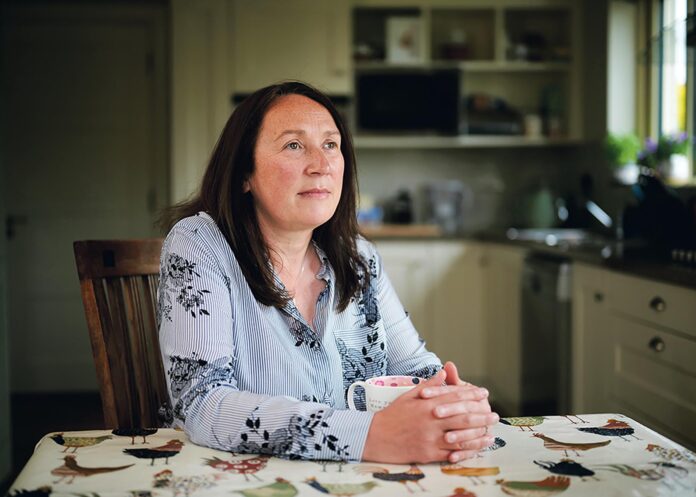IRELAND has the highest death rate in Europe from Ovarian cancer, with more than 75% of patients only presenting when the disease is at a late stage.
Tulla’s Anne Murphy works as a nurse with Clare Cancer Support and also works on raising awareness of ovarian cancer, having been diagnosed with it ten years ago.
“My sister and myself were diagnosed at the same time. I was diagnosed with Stage 1 and my sister Gráinne was diagnosed with late stage. She died 22 months after being diagnosed,” says Anne.
Anne herself had her treatment and is still in good health, which she feels is largely down to the disease not having progressed very far by the time of diagnosis.
Research was commissioned lately on Irish women’s awareness of the symptoms of Ovarian Cancer and some 80% did not recognise the symptoms, a statistic Anne describes as “very stark”.
To try and push home what people should look for, an acronym BEAT is being used
• Bloating that is persistent and doesn’t come and go
• Eating less and feeling full more quickly
• Abdominal and pelvic pain you feel most days
• Toilet changes in urination or bowel habits
If these symptoms are going on for three weeks or more, women are advised to go to their GP. “The best chance of doing well with this illness is being diagnosed early, the treatment outcomes are better,” says Anne.
Overall, Irish survival statistics are very low, because people don’t get diagnosed early enough. “What came out this year was that Ireland has the worst survival statistics in Europe for ovarian cancer.
The reason is that over 75% of women who present with ovarian cancer present with late stage disease. Every year 400 women are diagnosed with ovarian cancer in this country and every year 300 women die of ovarian cancer,” says Anne.
She warns that many women might be under the mistaken impression that cervical screening also provides a check for ovarian cancer.
“There is a serious misconception out there that when women go for their smear, that that checks their ovaries.
“But it doesn’t, it has nothing to do with it, it’s two separate parts of the body. There is no test to screen for ovarian cancer, the biggest thing women can do is be aware of the symptoms.
“If these symptoms persist for three weeks or more that warrants a trip to the GP.
“The majority of women who are diagnosed are over 50 years of age and it’s confused with other lifestyle issues, menopause, weight gain, irritable bowel, but if you get any of these symptoms that continue for three weeks it warrants an investigation by the GP.”
This Sunday, May 8, is World Ovarian Cancer Day, with a number of buildings across the country set to be lit up in the campaign colour, teal, as efforts to increase awareness are stepped up.
Owen Ryan has been a journalist with the Clare Champion since 2007, having previously worked with a number of other publications in Limerick, Cork and Galway. His first book will be published in December 2024.


